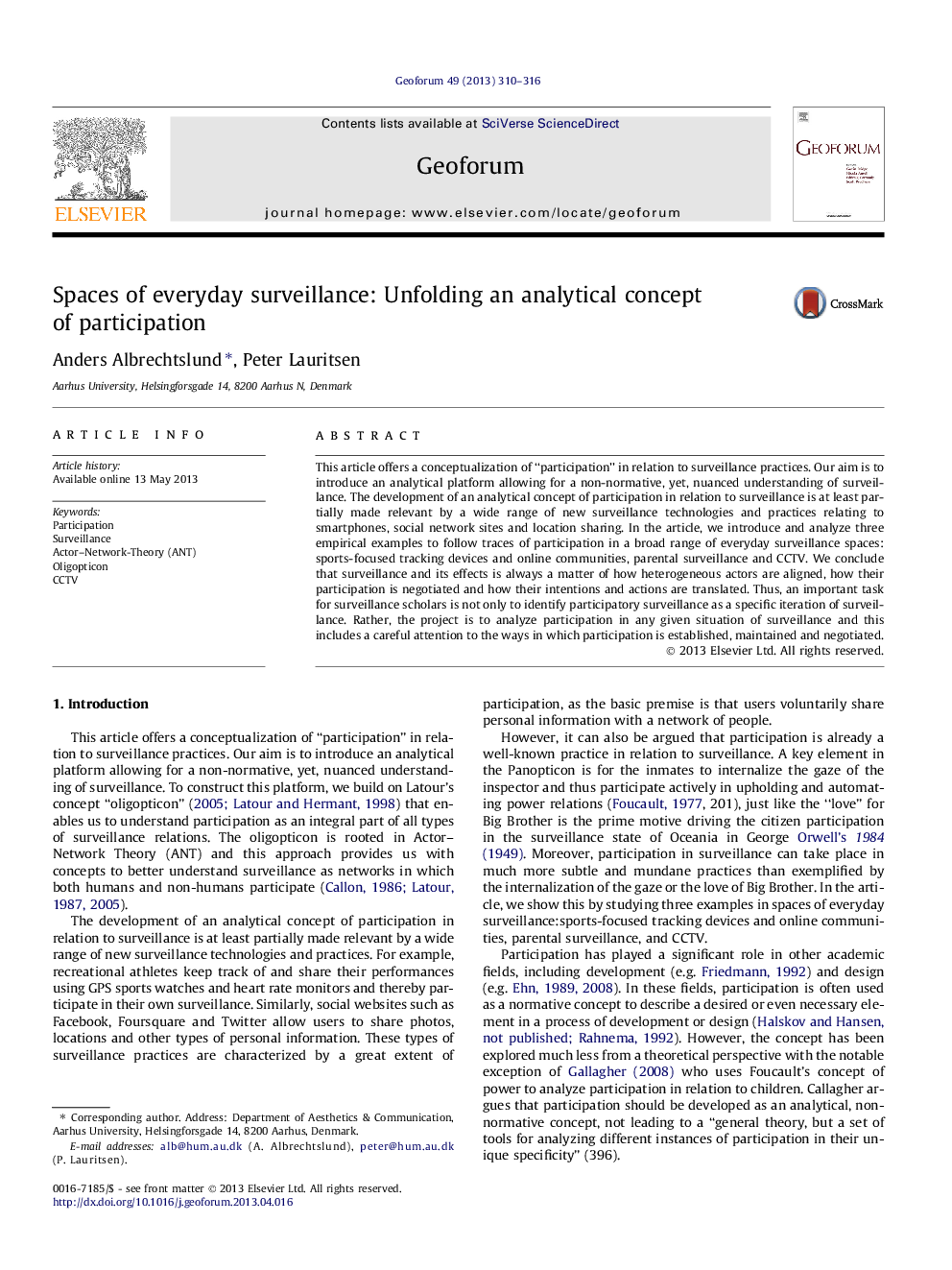| Article ID | Journal | Published Year | Pages | File Type |
|---|---|---|---|---|
| 5074234 | Geoforum | 2013 | 7 Pages |
â¢We conceptualize “participation” in relation to surveillance practices.â¢We introduce and analyze three empirical examples.â¢We conclude surveillance depends on how heterogeneous actors are aligned.â¢We conclude surveillance depends on how participation is negotiated.â¢We conclude surveillance depends on how intentions are translated.
This article offers a conceptualization of “participation” in relation to surveillance practices. Our aim is to introduce an analytical platform allowing for a non-normative, yet, nuanced understanding of surveillance. The development of an analytical concept of participation in relation to surveillance is at least partially made relevant by a wide range of new surveillance technologies and practices relating to smartphones, social network sites and location sharing. In the article, we introduce and analyze three empirical examples to follow traces of participation in a broad range of everyday surveillance spaces: sports-focused tracking devices and online communities, parental surveillance and CCTV. We conclude that surveillance and its effects is always a matter of how heterogeneous actors are aligned, how their participation is negotiated and how their intentions and actions are translated. Thus, an important task for surveillance scholars is not only to identify participatory surveillance as a specific iteration of surveillance. Rather, the project is to analyze participation in any given situation of surveillance and this includes a careful attention to the ways in which participation is established, maintained and negotiated.
